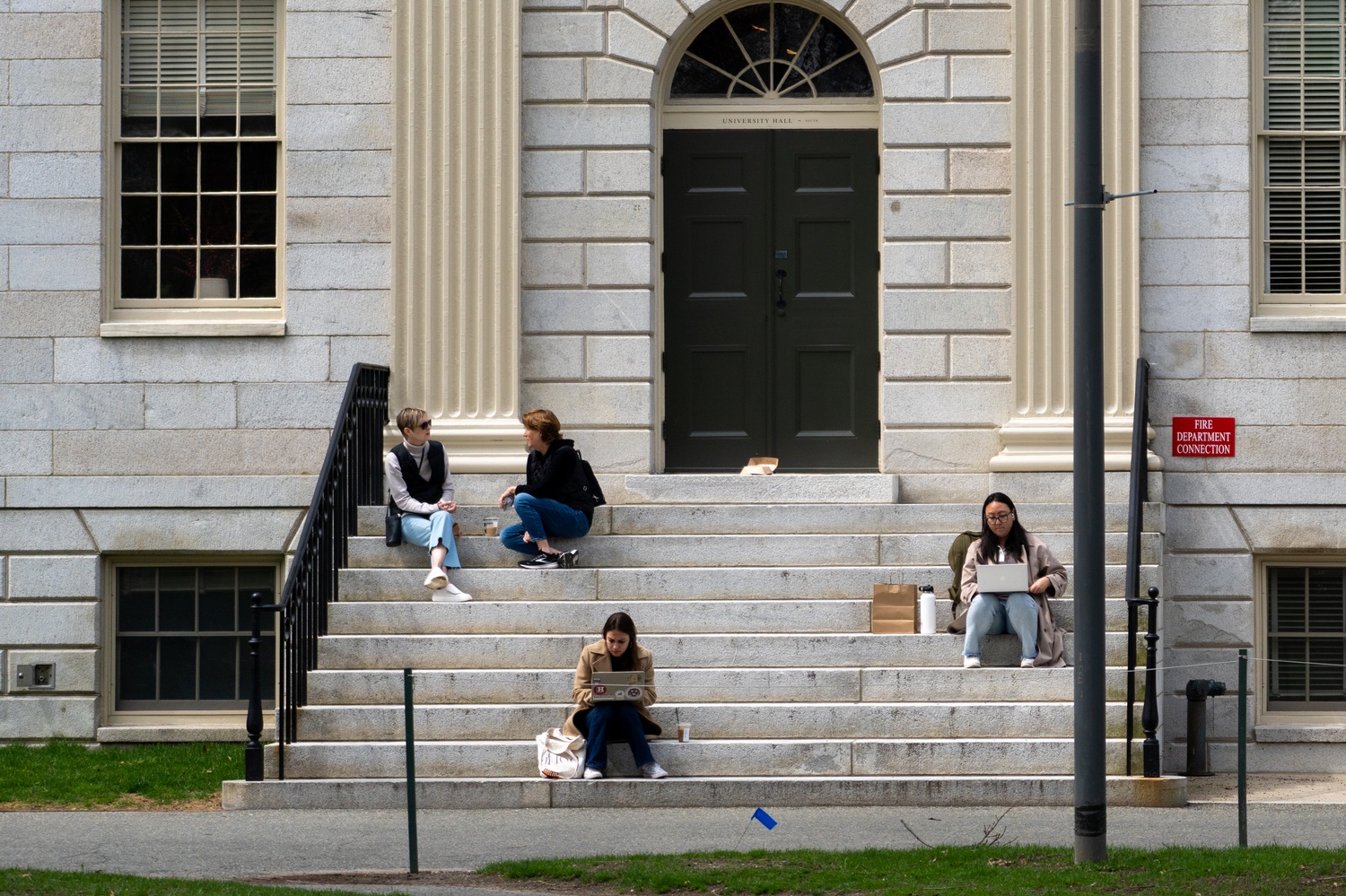
News
Summers Will Not Finish Semester of Teaching as Harvard Investigates Epstein Ties

News
Harvard College Students Report Favoring Divestment from Israel in HUA Survey

News
‘He Should Resign’: Harvard Undergrads Take Hard Line Against Summers Over Epstein Scandal

News
Harvard To Launch New Investigation Into Epstein’s Ties to Summers, Other University Affiliates

News
Harvard Students To Vote on Divestment From Israel in Inaugural HUA Election Survey
Peer Teaching Is Key to Our Education. I’m Glad Harvard’s Protecting It.
Amid the hiring freeze and funding uncertainty, Harvard has taken an important step to upholding our teaching mission.
I’m glad the University is still supporting student jobs, especially in the realm of undergraduate course assistants and teaching fellows.
Having taken a few of Harvard’s notoriously difficult classes — including Chemistry 17: “Principles of Organic Chemistry” and Statistics 110: “Introduction to Probability” — I can safely say I would not have made it through without the unwavering support of student CAs and TFs. In these large lecture courses filled with hundreds of students, you quickly realize an important truth: Once the lecture ends and the problem sets begin, your first line of support isn’t always your professor. More often than not, it’s your peers. These are the people who are willing to help with problem sets or essays in late-night office hours and clarify confusing concepts from the lecture.
Peer mentorship isn’t just helpful — it’s essential. It’s what makes Harvard’s community of learning sustainable.
Peer support lowers the stakes. It invites vulnerability and makes room for authentic, non-performative learning. It’s easier to ask questions — no matter how simple — when the person you’re asking was sitting in your exact seat years prior. There’s a freedom in being able to say, “I have no idea what’s going on,” and not only receive practical feedback but also reassurance and solidarity from others who were successful in the class. This peer-to-peer relationship creates a sense of shared investment in each other’s success, one that feels uniquely accessible and truly genuine.
I’m grateful that Harvard understands this reality, investing in a range of peer-led academic support systems. From peer tutoring with the Academic Resource Center and Writing Center to peer advising with the Advising Programs Office, and dozens of undergraduate CAs scattered throughout numerous departments, these roles shape how we learn, how we seek help, and how we relate to one another in an often competitive environment.
It’s also a gateway for students to better understand how this University runs. Working as a CA myself has given me a firsthand look at the labor and thought that go into organizing courses, supporting students, and sustaining academic communities. Behind every syllabus is a network of people working hard to make students feel equipped and valued.
In many ways, these kinds of jobs have been some of the most influential parts of my college experience. As a course assistant, you’re not just helping a student grasp course content — you’re deepening your own understanding. Every CA I’ve worked with has, at one point or the other, echoed some version of this sentiment: “I didn’t fully understand this topic until I had to teach it.” By teaching other students, you start to intentionally focus on common student struggles and systematic problem solving — key elements of pedagogy. Further, you have the opportunity to contribute to the teaching staff community and learn from others about how best to approach certain concepts.
Beyond the academic content, these positions foster latent professional skills like communication, empathy, and leadership. It’s easy to overlook these in an academic culture focused on grades and concrete deliverables, but they’re the very abilities that help individuals thrive outside of Harvard.
As the University continues to evaluate how to allocate its money and resources, I urge the administration to continue to protect — and, where possible, expand — undergraduate academic jobs. These positions aren’t just serving a financial purpose for students, they’re also vital to our educational mission.
At Harvard, students teach and mentor other students. It happens day after day, in office hours, tutoring, and problem-solving sessions. It’s not flashy, but it’s profoundly effective.
In moments of institutional uncertainty, it’s precisely this kind of peer-driven, community-centered support that keeps our University thriving. In these unprecedented times, let’s make sure we preserve it.
Sandhya Kumar ’26, a Crimson Editorial editor, is a double concentrator in Molecular & Cellular Biology and Statistics in Winthrop House.
Want to keep up with breaking news? Subscribe to our email newsletter.

